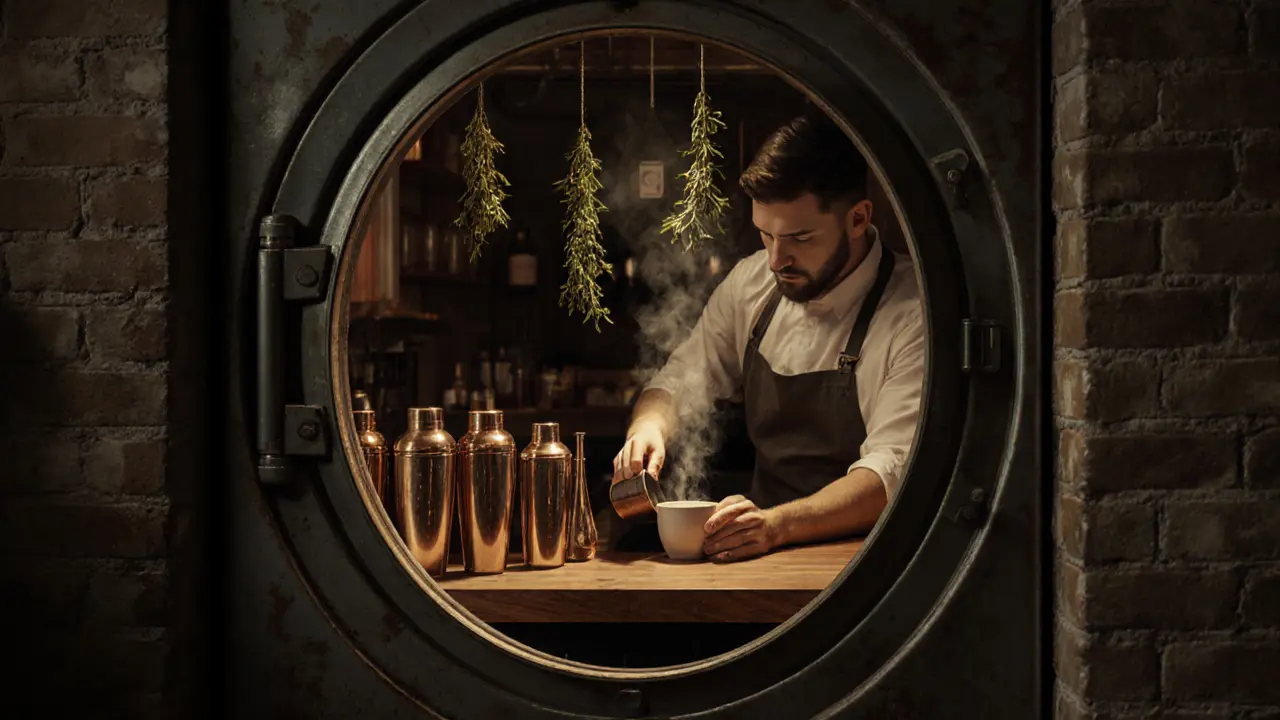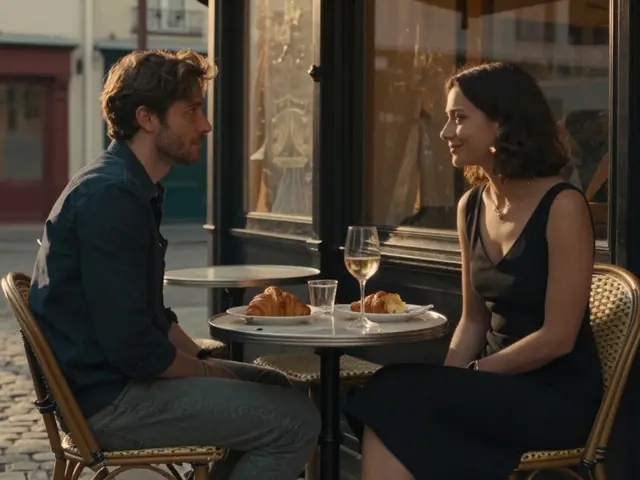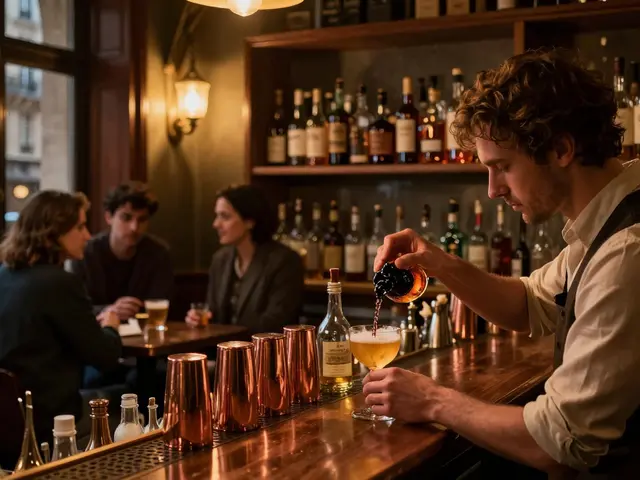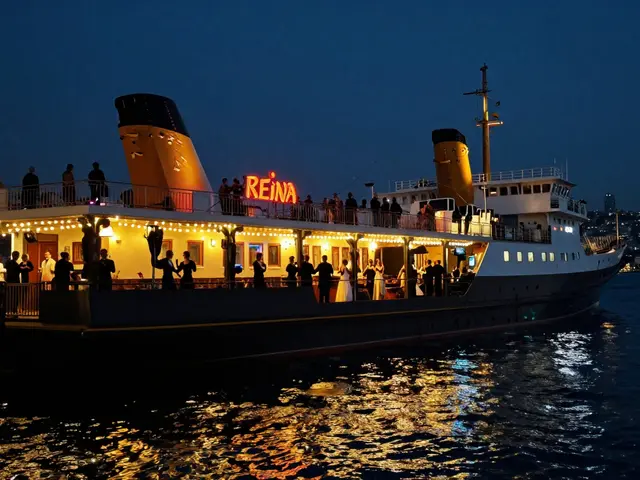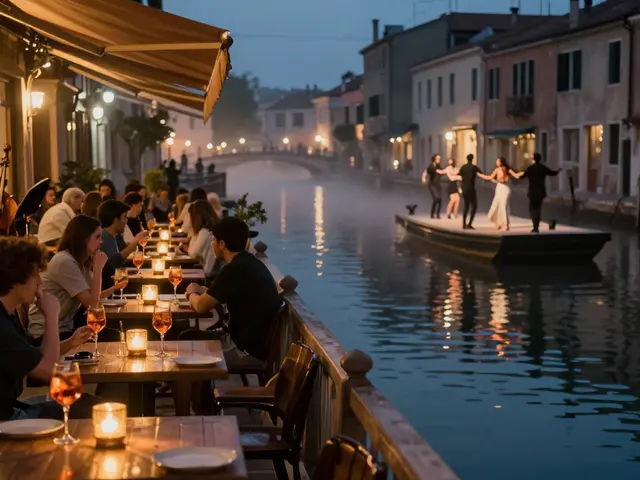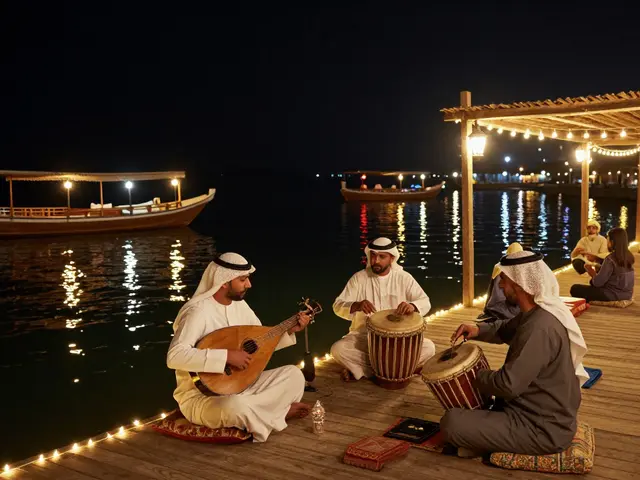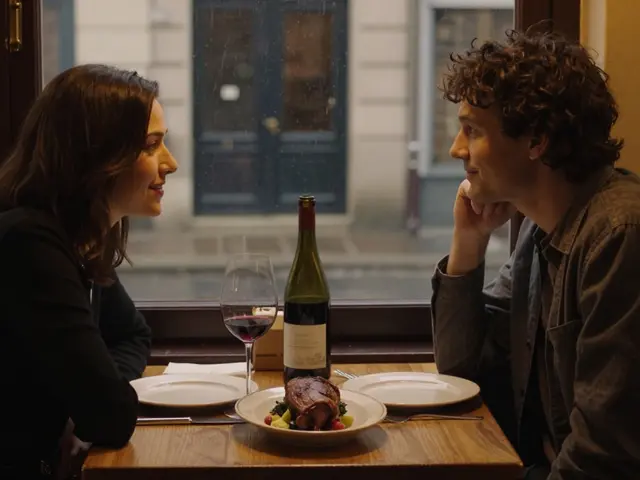London’s nightlife isn’t just about pubs and clubs with loud music and long queues. If you’ve been told the city shuts down after midnight, you’re missing the real story. The truth? London stays awake in ways most tourists never see. It’s not in the neon-lit strips of Soho or the overpriced cocktail lounges of Mayfair. It’s in the basement speakeasies, the 3 a.m. jazz dens, the silent rooftop gardens where strangers become friends, and the midnight food markets that only locals know about.
Find a Speakeasy That Doesn’t Look Like a Speakeasy
There are over 200 hidden bars in London, but most of them try too hard. Fake bookshelves, password-only doors, and men in waistcoats shouting "You’re in the right place!"-it’s tired. The real ones don’t advertise. One of the best is The Laundry, tucked behind a washing machine in a laundrette in Shoreditch. You don’t need a password. You just walk in, pick a detergent, and the back wall slides open. Inside, bartenders mix drinks using herbs grown on the roof. No menus. Just ask what’s fresh. They’ll pour you something you’ve never tasted before, and you won’t remember the name, but you’ll remember the smell of bergamot and smoked sea salt.
Drink Tea at 2 a.m. With a Poet
At 115a Hackney Road, a small flat doubles as a poetry lounge called Midnight Brew. No one takes tickets. No one even checks names. You show up between 1 a.m. and 3 a.m., kick off your shoes, and sit on a cushion on the floor. Someone will hand you a cup of jasmine tea with a hint of ginger. Then, someone else will stand up and read a poem they wrote that day-about losing a job, falling in love on the Tube, or the sound of rain on a council estate roof. The room never gets louder than a whisper. But when the last line ends, everyone claps. Not because it’s perfect. Because it’s true.
Listen to Jazz in a Former Morgue
Deep in Peckham, under a railway arch, lies The Silent Cellar. It used to be a refrigerated storage unit for dead bodies in the 1950s. Now, it’s a jazz club with no stage. Musicians play from corners, behind curtains, even from the bathroom. The acoustics are insane-the walls still hold the chill of old metal. You’ll hear a trumpet solo that sounds like a cry in the dark, or a double bass that hums like a subway train pulling into a station. No one talks during sets. No one takes photos. You’re not here to post. You’re here to feel something you can’t name.
Eat Dim Sum at 4 a.m. With Taxi Drivers
Most tourists think London’s food scene ends at 11 p.m. They’re wrong. In Walthamstow, a tiny kitchen called Golden Dumpling opens at 3 a.m. and serves steaming baskets of pork xiaolongbao, crispy turnip cakes, and sweet red bean buns. The staff are all retired taxi drivers who used to drive the night shift. Now they cook. The regulars? Night nurses, security guards, and delivery drivers. No one sits at tables. You stand at the counter, eat with chopsticks, and swap stories about the weirdest passenger you ever had. One man once ordered dumplings while crying because his wife left him. The cook handed him an extra dumpling and said, "Eat. Tomorrow’s another shift."
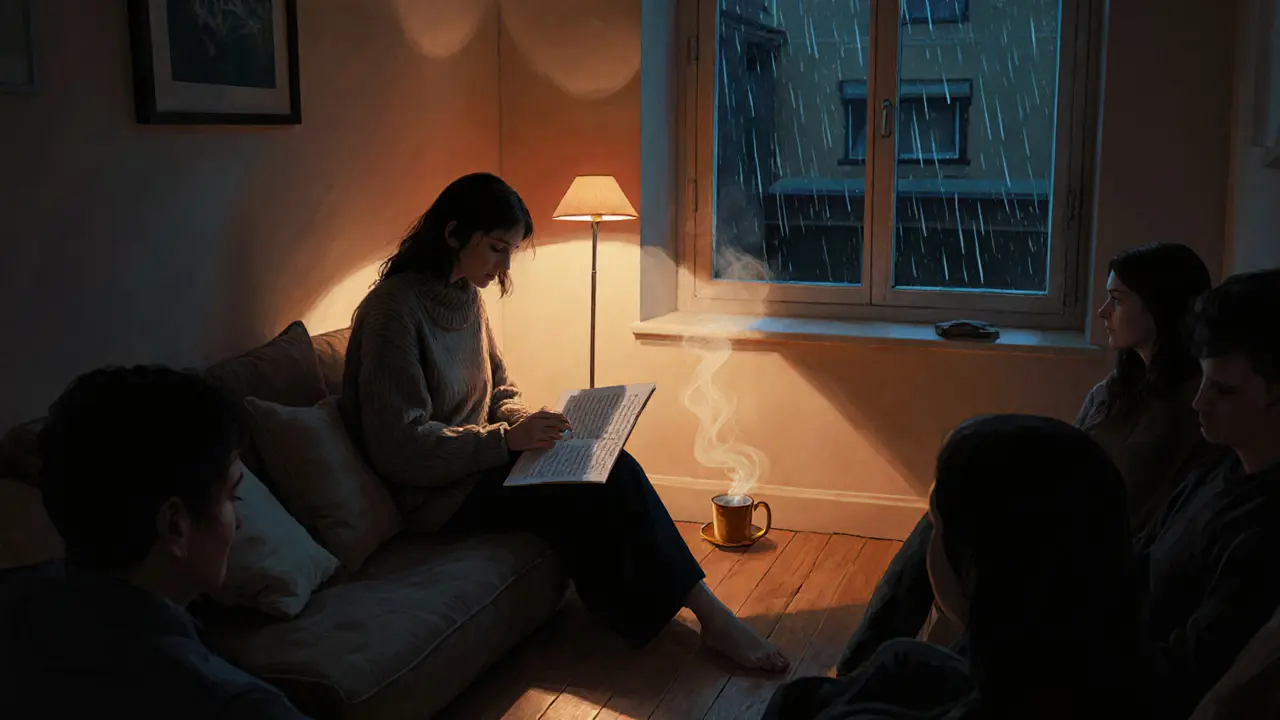
Watch a Movie in a Library That’s Closed
At the British Library, every third Friday of the month, they turn off the lights after midnight and project old British films on the wall of the Reading Room. No one tells you about it. You have to know someone who knows someone. The crowd is small-maybe 30 people. You sit on the floor with a blanket, sipping hot chocolate from a paper cup. The films are never blockbusters. They’re forgotten 1960s documentaries about street cleaners, silent comedies from 1927, or black-and-white shorts about Londoners during the Blitz. The projector clicks. The dust floats. And for an hour, you’re not in 2025. You’re in a London that doesn’t exist anymore.
Walk the Forgotten Underground Tunnels
Underneath King’s Cross, there’s a network of disused tunnels that once carried coal and mail. Some are sealed. Others? They’re still open-just barely. A group of urban explorers, called The Hollow Men, leads monthly walks through them. You wear a helmet, carry a lantern, and follow a path marked by chalk arrows. The air smells like wet stone and old paper. You’ll pass through rooms where postcards from 1912 are still pinned to the walls. You’ll hear water dripping like a metronome. No phones work down there. No music. Just silence and footsteps. At the end, you emerge near a bakery in Camden. Someone hands you a warm scone. No one says a word. You just smile.
Play Board Games With Strangers at 1 a.m.
On the third floor of a nondescript building in Brixton, Game of the Night runs every Thursday. It’s not a bar. It’s not a café. It’s a living room with 12 tables, 200 board games, and no Wi-Fi. You pay £5, get a cup of tea, and pick a game. You might end up playing a 4-hour war simulation with a retired army officer, or a silly party game with a 17-year-old who just moved from Nigeria. No one checks IDs. No one cares if you’re dressed up or in sweatpants. The only rule? No phones at the table. The winner gets a sticker. The real prize? The conversation that starts after the game ends.
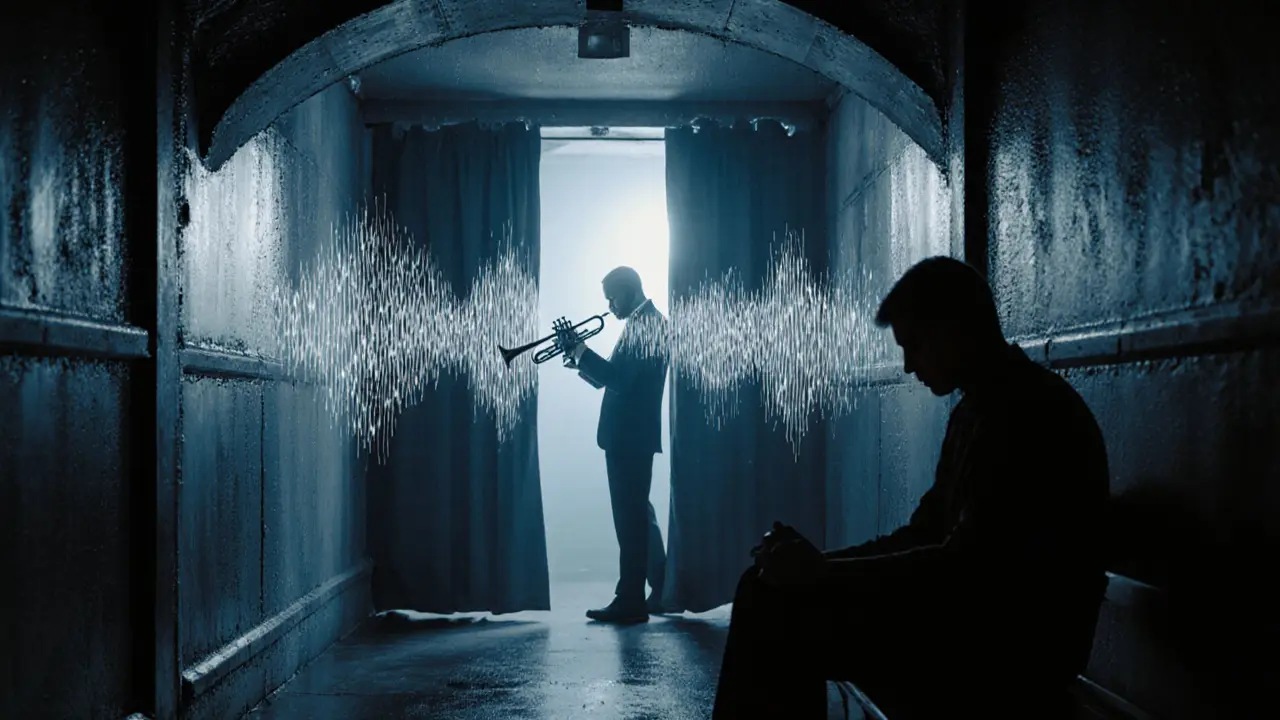
Why This Matters
London’s real nightlife isn’t about being seen. It’s about being present. In a city that moves too fast, these places slow you down. They don’t sell drinks. They sell moments. Not the kind you post online. The kind you carry in your chest when you wake up the next morning, wondering if it was real.
You won’t find these spots on TripAdvisor. You won’t see them on Instagram ads. You’ll find them because you walked down the wrong street. Because you asked a barista what they do when they’re not working. Because you stayed one hour too long.
What to Bring
- A jacket-even in summer, underground places stay cold
- Cash-most places don’t take cards
- A quiet mind-leave your phone on silent
- Curiosity-not a checklist
When to Go
Most of these experiences happen between 1 a.m. and 4 a.m. Weekends are best, but weekdays feel more real. Avoid Friday nights if you want space. Saturday nights? You’ll find more people-but also more noise. Go on a Tuesday. You’ll be one of three people in the room. That’s when the magic happens.
Are these places safe for solo travelers?
Yes. Most of these spots are run by locals who’ve been doing this for years. They know who comes and who doesn’t. You won’t find drugs, aggression, or scams. The vibe is quiet, respectful, and intentionally low-key. If you feel uncomfortable, just leave. No one will follow you. The people there aren’t looking for attention-they’re looking for connection.
Do I need to book ahead?
Not usually. Most places operate on a first-come, first-served basis. A few, like the underground tunnel walks, require a simple email signup a day in advance. But don’t overthink it. Show up. Wait. Listen. If there’s a line, you’re probably in the right place.
Can I take photos?
Only if you’re asked. Many of these places ban phones entirely-not to be rude, but to protect the experience. If you snap a photo, someone might quietly say, "Can you put that away?" Don’t argue. Just nod. You’ll remember it better without a screen between you and the moment.
What if I don’t speak much English?
It doesn’t matter. These spaces thrive on silence, gestures, and shared presence. At Midnight Brew, you’ll hear poems in 12 languages. At Golden Dumpling, you’ll eat with your hands and smile. At The Silent Cellar, you’ll feel the music before you understand it. You don’t need words. You just need to be there.
Are these places expensive?
Not at all. Most charge £5-£10. Some, like the poetry lounge, ask for a voluntary donation. You could spend £30 and have five unforgettable experiences in one night. That’s cheaper than a standard club entry and two drinks. You’re paying for memory, not alcohol.
Next Steps
Start tonight. Pick one place. Go alone. Arrive 15 minutes early. Sit down. Watch. Listen. Don’t try to capture it. Just let it happen. London doesn’t need you to be loud. It needs you to be quiet enough to hear it breathe.
